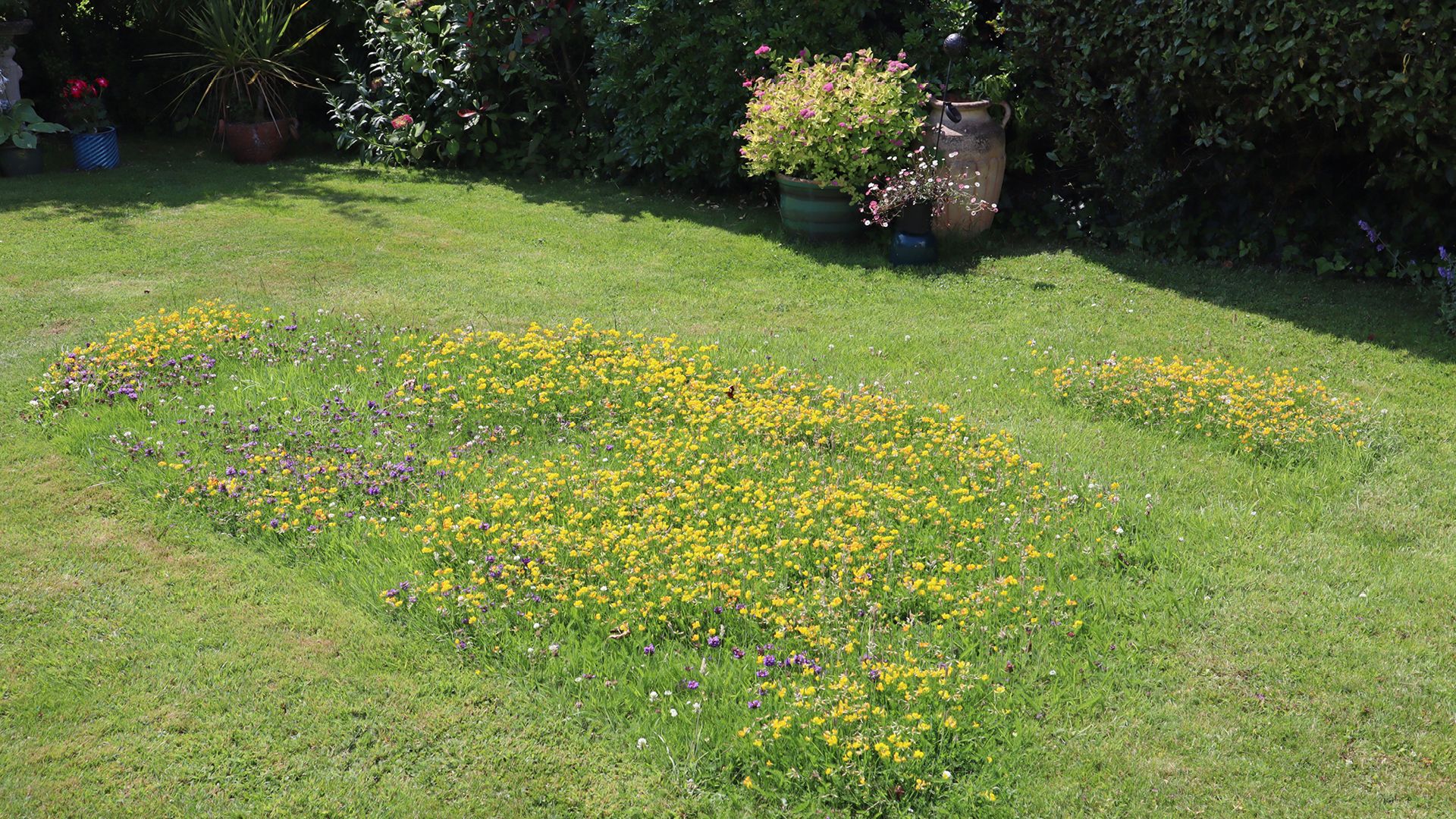Rewilding - what would Hyacinth Bucket say?
By Malcolm Birks | 28.05.24
In the early 1990s, the BBC ran a sitcom called ‘Keeping Up Appearances’, with the main character named Hyacinth Bucket (pronounced Bouquet). It satirised the snobbery and trivial concerns of the middle and upper classes.

In Hyacinth’s world, keeping up appearances was everything, with her catchphrase “What would the neighbours say!”. Tidiness and presentation were key, particularly at the front of the house where the neatness of the lawn and the cleanliness of the driveway were vital expressions of English fortitude, status, and respectability.
In the context of the current focus on rewilding and the preservation of biodiversity, Hyacinth’s catchphrase plays out in many people’s minds, as they make individual decisions about whether to cut the lawn; whether the beds really look 'untidy', and if a weed really is something to be removed or is actually a useful contributor to nature’s abundant riches, feeding insects and improving soil health.
No Mow May
No Mow May is a national campaign, which aims to boost flowers and nectar available to pollinating insects such as bees, butterflies, and moths. It also allows spring flowers to set seed and plants to establish themselves in advance of the summer whilst helping to tackle pollution, reduce urban heat extremes, and lock away atmospheric carbon below ground.
As the charity Plantlife explains: “We’ve lost approximately 97% of flower-rich meadows since the 1930s and with them gone is vital food needed by pollinators.”
Our sense of tidiness stems from a very human desire for order and organisation amidst the often messy and chaotic backdrop of life. It is inevitably bound up with feelings of status and respectability amidst the oft-found predilection people have to compare themselves with others. The character of Hyacinth Bucket drilled deeply into the English psyche and at times the revelations were painfully and personally recognisable.

There is, of course, a halfway house. Mowing the edge strip and leaving a ‘neater’ core of unmown ‘wild area’ is increasingly popular, declaring a level of intention and control. “Yes, you see, we meant this!” it proclaims. Is this just another example of virtue signalling or a happy balance of competing ideologies?
Planning requirements for new housing developments
On many new housing developments, there is a planning requirement to manage the biodiversity requirements for thirty years and there is a growing market of firms willing and able to manage these aspects, complete with full assessment, management, and monitoring. All at a healthy cost to homeowners of course. It’s hard not to be a little cynical. Yet we all clearly need to do more to protect nature and biodiversity. Whatever the relative merits of the recent biodiversity net gain (BNG) rules, it’s a good time to be an ecologist.
Certainly, our notions of tidiness and order are being challenged by the new orthodoxies. Perhaps this lets us relax a little more and just enjoy the chaos and sheer beauty of the nature around us. As the tide turns, will societal expectations change too? "Mowing the lawn in May? What would the neighbours say!"
Practical tips for your garden:
- Mow more strategically - either promote areas that are mown less frequently or adjust the height of your mower to allow species to develop stronger root systems and become more resilient to adverse weather conditions.
- Mow fortnightly rather than weekly as this will still allow some species to flower.
- Connect-up habitats to develop ecological corridors for movement and food sources. There is very little point in leaving a circle of longer grass when it lacks connectivity to other planting types or mosaics of habitat.
- Go organic – ditch herbicides and pesticides, embrace plant failures and species that may become dominant, and support healthier ecosystems.
- Use more native species better suited to our climate and which support local wildlife populations.
Get in touch
We help to unlock the potential of rural land and property assets to create value for those who own and manage them. By doing so, we create places for people to live, work and enjoy the countryside.
Give us a call on 01756 797501 or email info@ruralsolutions.co.uk
We'd be delighted to have a chat.
We are using cookies to give you the best experience on our website. You can find out more about which cookies we are using on our cookie policy.


